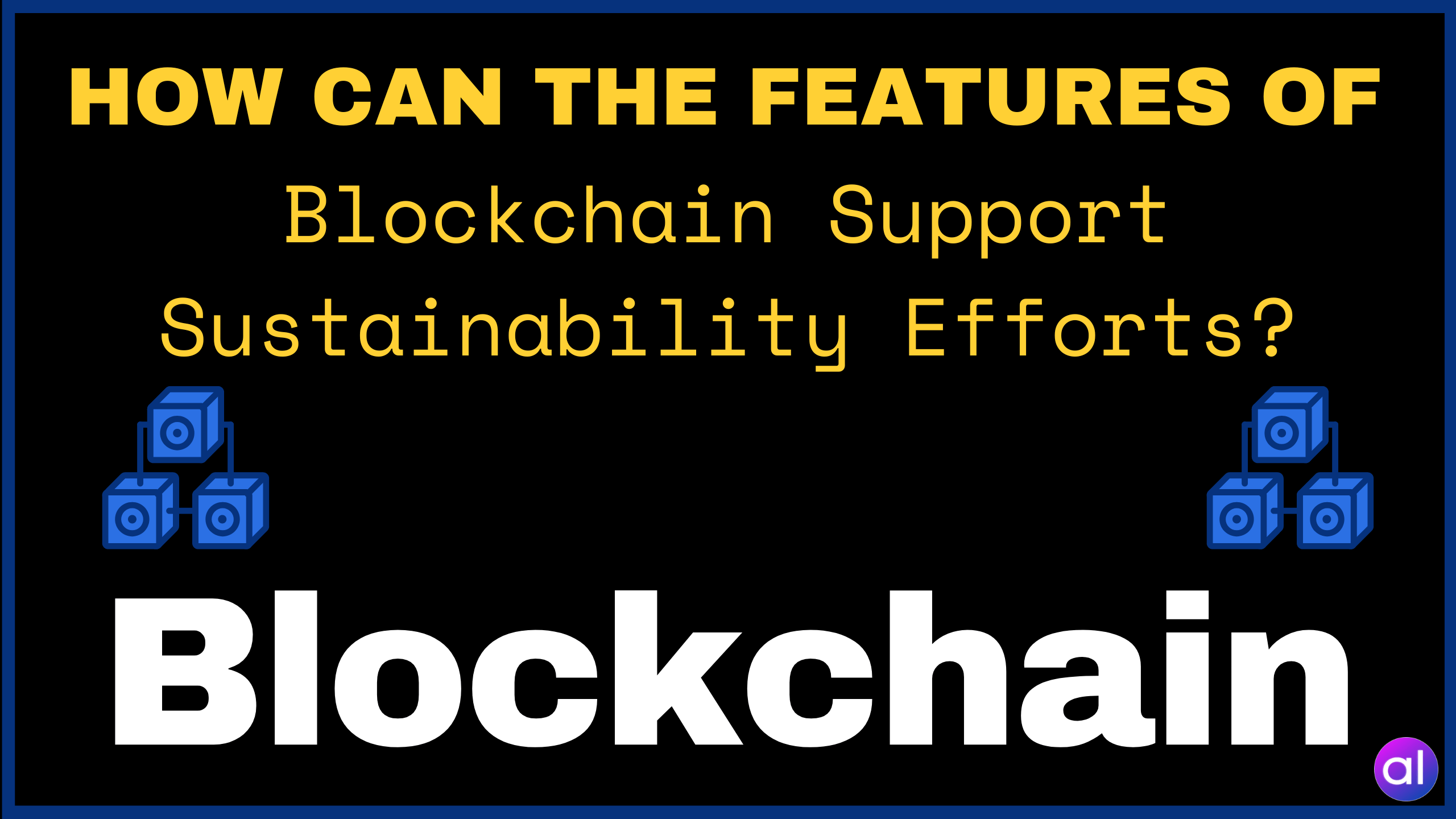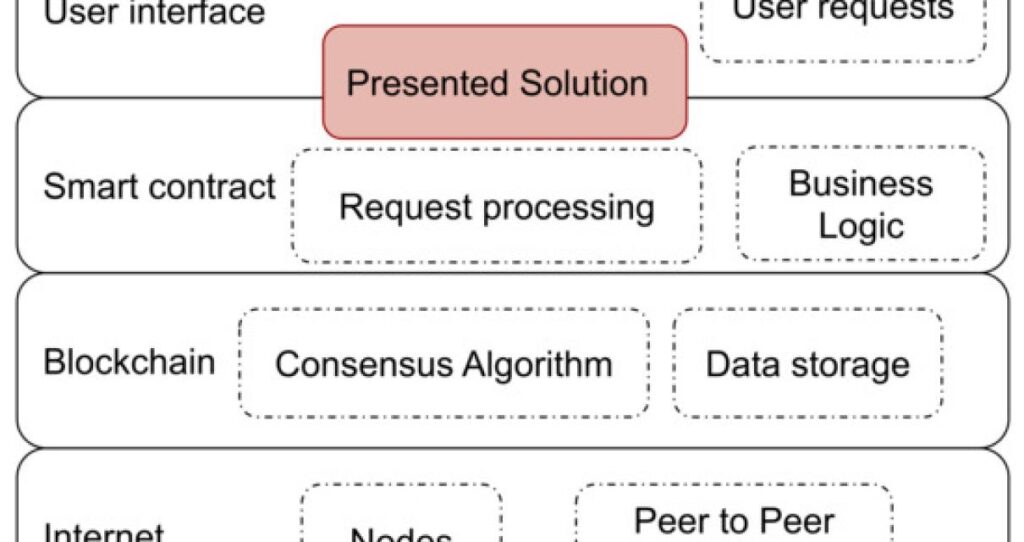As the world becomes increasingly aware of the urgent need to address climate change and other environmental challenges, innovative technologies are emerging as key tools in the fight for sustainability. One such technology that has gained significant attention in recent years is blockchain. Originally developed as a way to manage digital currencies, blockchain has now been recognized for its potential to support sustainable initiatives across a range of sectors.
At its core, blockchain is a decentralized digital ledger that records transactions between parties in a secure and transparent manner. This unique technology has several features that can support sustainability efforts, including increased transparency and traceability, enhanced efficiency and accountability, and the ability to incentivize sustainable behaviors. In this article, we will explore these features in more detail and examine how they can be leveraged to drive positive environmental outcomes.
Blockchain technology can provide a secure and transparent way to track and measure sustainability efforts. It can track the origin of materials and products, and even allow the tracking of carbon offsets. It can also enable secure, direct payments between businesses and customers, eliminating the need for intermediaries and reducing costs. Additionally, blockchain technology can be used to create smart contracts that automate certain processes, speeding up the efficiency of transactions and reducing paperwork. Finally, blockchain-based applications can be used to store and share sustainability data, ensuring that all stakeholders have access to the most up-to-date information.

Introduction to Blockchain and Sustainability
Blockchain technology has been heralded as a revolutionary tool for sustainable development. The distributed ledger technology (DLT) offers a secure, immutable, and transparent platform for organizations, businesses, and individuals to transact in a trustless manner. It offers a range of applications and features that can be leveraged to support the goals of sustainability initiatives. This article will explore the various ways in which blockchain technology can support sustainability efforts.
How Can Features of Blockchain Support Sustainability Efforts?
Transparency
One of the key benefits of blockchain technology is its ability to provide a transparent and verifiable record of transactions. This means that organizations, businesses, and individuals can easily track and audit their activities, ensuring that they are following sustainable practices. Blockchain also offers organizations a way to better manage their environmental impact, which can be especially beneficial for businesses operating in the sustainability space. Additionally, the transparent nature of blockchain means that it can be used to provide real-time updates on the progress of sustainability initiatives, helping to ensure that progress is being made.
Secure and Immutable Record
Another key feature of blockchain technology is its secure and immutable record-keeping. This ensures that any data stored on the blockchain is secure and cannot be modified or manipulated. This is especially important for sustainability initiatives, as it ensures that data is not tampered with and that organizations are able to accurately report on their sustainability efforts. Additionally, the secure and immutable record-keeping of blockchain technology also helps to prevent fraud and abuse, which is essential for ensuring that sustainability initiatives are properly implemented.
Smart Contracts
Smart contracts are automated agreements that are stored on the blockchain and are executed when certain conditions are met. This technology can be used to automate a range of sustainability initiatives, from tracking the progress of environmental initiatives to ensuring that organizations are following sustainable practices. Smart contracts can also be used to create incentives for individuals and organizations to participate in sustainability initiatives, helping to ensure that they are properly implemented.
Decentralization
Blockchain technology is inherently decentralized, meaning that it is not controlled or owned by any single entity. This makes it ideal for sustainability initiatives, as it allows organizations, businesses, and individuals to easily collaborate and share data in a secure and transparent manner. Decentralization also means that organizations can easily access data from multiple sources, helping to ensure that sustainability initiatives are properly implemented.
Tokenization
Tokenization is the process of creating digital tokens which represent a certain asset or value. These tokens can be used to incentivize individuals and organizations to participate in sustainable initiatives, as well as to track progress on sustainability initiatives. Tokenization can also be used to create incentives for individuals and organizations to purchase sustainable goods and services. This can help to ensure that sustainable practices are properly implemented and that resources are used efficiently.
Data Tracking and Analytics
Blockchain technology can also be used to track and analyze data related to sustainability initiatives. This data can be used to identify areas where improvements can be made, as well as to measure progress on sustainability initiatives. Additionally, blockchain-based data tracking and analytics can help to ensure that data related to sustainability initiatives is stored securely and can be accessed in a transparent manner.
Data Sharing
Finally, blockchain technology can be used to facilitate data sharing between organizations, businesses, and individuals. This can be especially beneficial for sustainability initiatives, as it allows organizations to easily access data from multiple sources and to collaborate in a secure and transparent manner. This can help to ensure that sustainability initiatives are properly implemented and that resources are used efficiently.
Frequently Asked Questions about the Role of Blockchain in Sustainability Efforts
Below are some of the most commonly asked questions about the use of blockchain technology to support sustainability efforts.
What Is Blockchain Technology?
Blockchain technology is a distributed digital ledger system that records and verifies transactions on a network of computers. It is a decentralized system that is secure, immutable, and highly resilient to hacking. This technology enables users to securely transfer digital assets without the need for a third-party intermediary, as well as to securely store and transmit data. As a result, it can be used for a variety of applications, ranging from financial services to healthcare, supply chain management, and sustainability efforts.
How Can Blockchain Technology Be Used to Support Sustainability Efforts?
Blockchain technology can be used to support sustainability efforts in a variety of ways. For example, it can be used to track the origin of materials and products, helping to ensure that they are sourced responsibly and ethically. It can also be used to verify the authenticity of products and to trace the movement of goods throughout the supply chain. This can help to combat fraud and ensure that products are not sourced from unethical sources. Additionally, blockchain technology can be used to track and monitor energy consumption, helping to ensure that resources are being used efficiently and sustainably.
What Are the Benefits of Using Blockchain for Sustainability Efforts?
The use of blockchain technology for sustainability efforts has several benefits. Firstly, it can help to reduce the risk of fraud by providing an immutable and secure record of transactions. Additionally, it can increase transparency and traceability, helping to ensure that resources are being used responsibly and ethically. Finally, it can also help to increase efficiency by reducing transaction costs and eliminating the need for third-party intermediaries.
What Challenges Does the Use of Blockchain Technology Pose for Sustainability Efforts?
Although blockchain technology can be used to support sustainability efforts, there are some potential challenges that should be considered. For example, the technology can be expensive and time-consuming to implement, and it requires a large amount of energy to operate. Additionally, the technology is still relatively new, and as such, there are still some regulatory and legal issues that need to be addressed.
What Are the Potential Benefits of Incorporating Blockchain Technology into Sustainability Efforts?
Incorporating blockchain technology into sustainability efforts could have several potential benefits. Firstly, it could help to increase transparency and traceability throughout the supply chain, allowing for more efficient resource management. Additionally, it could help to reduce the risk of fraud, as well as reduce transaction costs and increase the efficiency of operations. Finally, it could also help to improve the accuracy of data, allowing for more effective decision-making.
Blockchain Technology and Sustainable Development | Dr. Mike Troilo | TEDxUTulsa
In conclusion, blockchain technology offers a unique platform for promoting sustainability efforts. Its features, such as transparency, immutability, and decentralization, make it an ideal tool for tracking and verifying sustainable practices across various industries. By leveraging these features, blockchain technology can help companies reduce their carbon footprint, promote ethical sourcing, and increase accountability for environmental impact. Additionally, blockchain-based solutions can also enable peer-to-peer energy trading, allowing individuals to exchange excess renewable energy and reduce reliance on fossil fuels.
However, while blockchain technology offers significant potential for promoting sustainability, it is not a panacea. The success of blockchain-based solutions ultimately depends on the willingness of individuals and organizations to adopt them and use them effectively. Moreover, as with any technology, blockchain also has its limitations and potential drawbacks that must be carefully considered. Nevertheless, with the right approach and careful consideration of its capabilities and limitations, blockchain technology can play a crucial role in supporting sustainability efforts and creating a more sustainable future for all.



